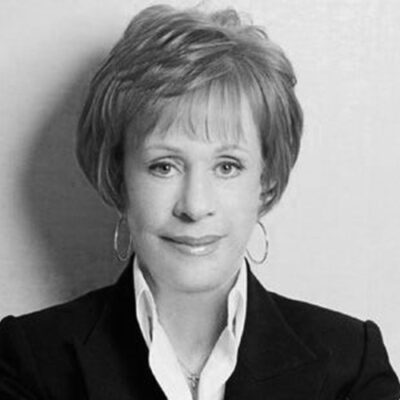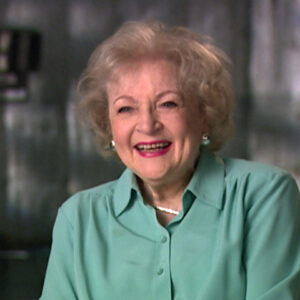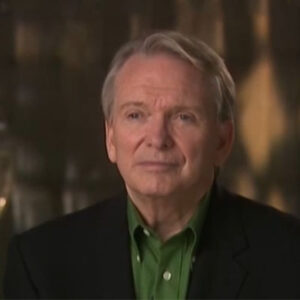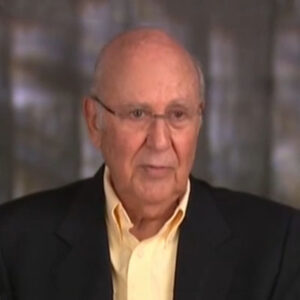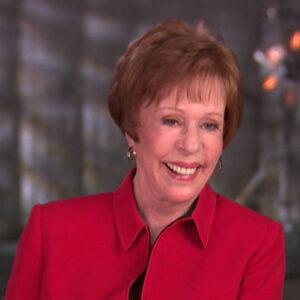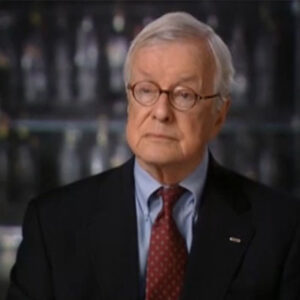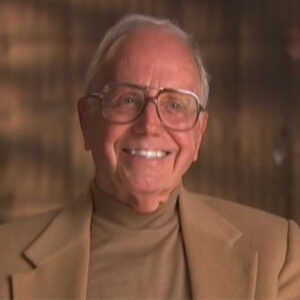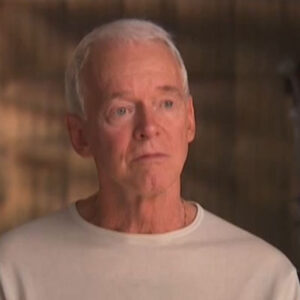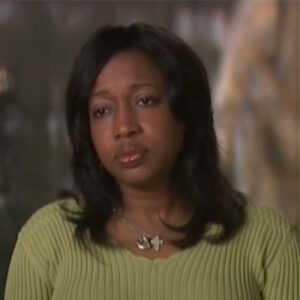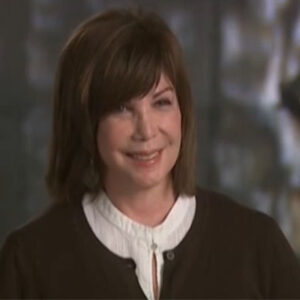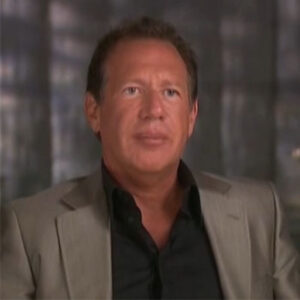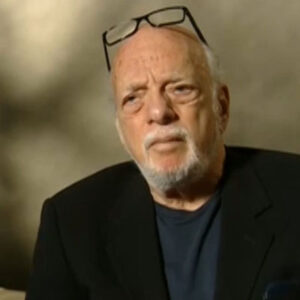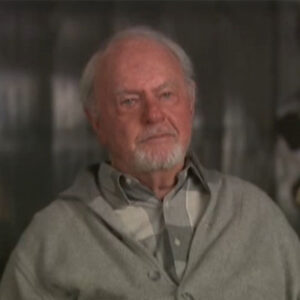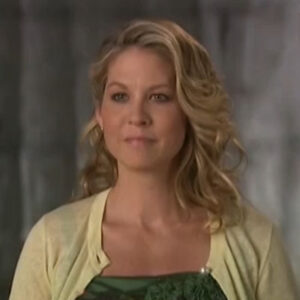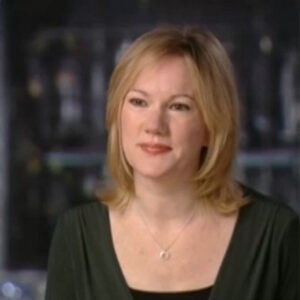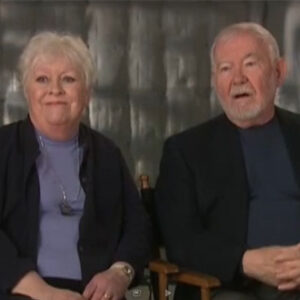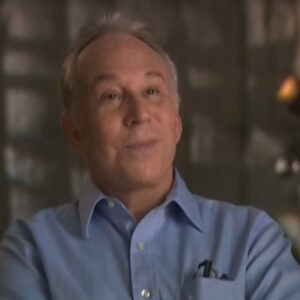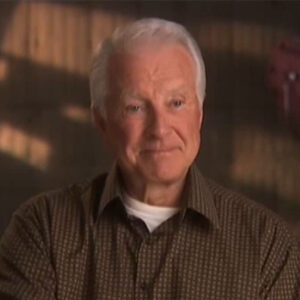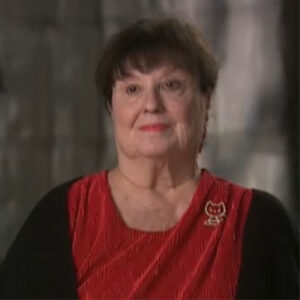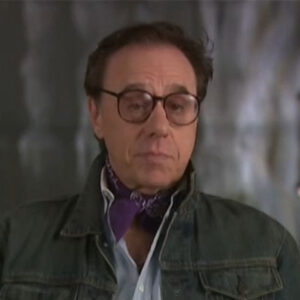Lee Grant: Well, I was I was a fan, like all Americans were of the comedy show. And even seeing them today, she is just totally outrageous and fresh and original and and delicious. And I remembered hearing a lot of, you know, really hot leading men who guest starred on the show saying that they found her very attractive and that she really interested them. And so it was that kind of dichotomy of her of her making herself ridiculous and going as far as she could in those characters. And the combination of there being something else there, Carol, is a woman that they’re always intrigued me.
Interviewer: How do you think we saw that? Was it from the fact that she was sort of coming out in these gorgeous gowns at the beginning of every show or what are you talking about? What sort of another layer of emotion that we sense?
Lee Grant: I think it’s I think it was the under layer of emotion. But but when she came out and the gorgeous gowns, if you’re talking about the beginning and the end of the shows, that wasn’t what interested me the most. The thing that interested me when she came out in, you know, revealing gowns in which she played Scarlett O’Hara. And she she, you know, would take Scarlett O’Hara and set it on its side and still be very original and very attractive through it. So it was her willingness to do anything that was original, to be further than funny, to go as far as she could, that, you know, for any actor watching you say just wow. And she pushed her company in that same direction. So.
Interviewer: Do you think she was looking at sort of the landscape of other women in comedy at the time was different in that way?
Lee Grant: You know, I wouldn’t know. I wouldn’t know what her feeling was about other women in comedy sheet. She was an original. And she took that step. And somehow or other, she was lucky in that. People recognized it and gave her a shot.
Interviewer: It just seemed like there was a time when she was starting out, when women in particular could either be funny or feminine, but not really both. And it seemed like she was able to combine the two.
Lee Grant: Well, I don’t know. Did Phyllis Diller come after her? Did Joan.
Interviewer: Phyllis Diller actually is older than she came just after.
Lee Grant: Yeah. Because there was a period that she may have started when women were coming out and making fun of their lives, of their marriages, of. And it was it was all kind of exploding at the same time,.
Interviewer: Their appearance.
Lee Grant: Yeah.
Interviewer: Or are there any other favorite characters from The Carol Burnett Show? I’m wondering if. Eunice.
Lee Grant: Yeah. Eunice. Miss.
Interviewer: I was thinking, especially for your dramatic part. I’m just wondering if we saw any glimpses,.
Lee Grant: There were absolutely no glimpses of of of the character that she played in Seasons of the Heart and what she did in her own show. But there was a sense, I think, of actor to actor or woman to woman, knowing something about her private life, knowing that she was having problems with her daughter who was into drugs at the time. And I was in California at a time and working there when everybody’s daughter was into drugs, when everybody’s husband was philandering. And. And it seemed to me that she had a very interesting way of having the most original cover in humor and in kind of desperation of any actor I’d seen. And so when I got this script from a first time writer called Seasons of the Heart, it was about a very, very kind of executive career woman who had been having a long affair with a very charming guy. And George Segal was the one who played that guy. And as it happens, her husband either went off or died. I don’t remember what, but she married the man she had this long affair with, with the constant worry of whether now that they’re married, whether he would still go on being a philanderer. And of course, he did. And so I felt that that was such an interesting premise. For every woman’s relationship, every woman’s kind of worry. But it was there and to get George Segal, who is such an interesting actor, so charming, so irresistible in so many ways to have that connection and still have your own self-respect, which she has so much of. And to have the problem with this druggie daughter and a business which I think her boss and I don’t remember, you could tell me because I haven’t seen it recently. But Malcolm McDowell, Malcolm McDowell played. Was it her boss?
Interviewer: Actually, he was her editor.
Lee Grant: She. Yes, that’s right. She was a publisher. He was a writer. She was an editor. And so there are these two interesting men in her life, in her life. And she also has the problem that her daughter, who takes drugs, has a child. And juggling that kind of thing at a certain time in your life when you’re not sure of your husband, when your work thing with your best writer is a little wobbly. And to have that pull of knowing, you have to take care of something you don’t want to take care of, which is a small child, I thought was a very, very fascinating problem for a woman of our day. And I felt that it would be very fresh. To have Carol cross over those places that she’d been in comedy and using that kind of cover that she has with a kind of problems that I know she must have faced. Since we’ve all faced them and so, you know, she read it, she said yes. And I called. I don’t forget which note. I did it with him. They said yes immediately.
Interviewer: So did she. When you first read the script, you pop into your mind. Is there some moment?
Lee Grant: No, she. She popped into my mind immediately. I’ve been watching her and thinking about her. And so when I saw this, I just thought, you know, that’s that’s a good kind of huge step for her to take.
Interviewer: And how did you when you discussed the part with her? How much did you bring in or did she bring you in or touch on what was going on in her life?
Lee Grant: Oh, I didn’t. I didn’t go there. I you know, I feel that with an actor when you know that they’ve been someplace to talk it out until, you know, they’ve said this is what I’m bringing to the table. Kind of, you know, especially as as as you say, Carol is a very private person. And to have me, you know, say, well, what about this? What about that? You know, I didn’t think I needed to do that. I she brought it to the table.
Interviewer: And did she ever say, I’m here to watch this? Thank you very much. Still, really? Yes. Did she ever say to you, go in a part like, I know how to play this, I know this scene? Or were there any moments where she was a little bit more verbal about that?
Lee Grant: I know because because I used what she gave me and if it needed to be pushed a little further. As a director. That’s the way I work with an actor anyway. And that’s the way directors have worked with me. They wanted me to surprise them. I wanted Carol to surprise me. And and the scene in which I was most interested. I’m most excited. Well, you tell me.
Interviewer: Well, I was going to ask you about the scene where she goes to her daughter’s apartment.
Lee Grant: Well, the scene where she goes to the daughter’s apartment. But I love the scene with she and George in the bedroom with a fight before they go out where she knows that he’s carrying on an affair. And this and there’s that. That husband and wife. Chip. Chip, chipping away. Well, you knew that this was who I am. You know, you married me, but, you know, that kind of thing which allowed her to get some of her strength and bitterness and anger out, because that’s an area that I hadn’t seen Carol work in before. And that’s a part that I don’t think she would show. She wouldn’t show her anger. She wouldn’t show her bitterness. She wouldn’t show. She would show that softer side. The one you’re talking about. What not. How dare you do this to me?
Interviewer: That’s true. Actually, I can’t think of any other scenes.
Lee Grant: No. That’s the one. That’s the one which says this is Carol, the actress, using a part of herself that she couldn’t show, you know, in a drama before.
Interviewer: Do you remember shooting the scene when she visits the daughter? When I watched that? I just thought that must have been just hard to play for her.
Lee Grant: Well, I think it was easy for her to play. I think I think she’d been there many times and and she was always incredibly supportive of her children, of her daughters. I think she knew what they were going through and how tough it was. And they were in a tough place. There’s nothing tougher than Hollywood for daughters of stars. I have a daughter who became a star, Diana Manoff, and I know what a hard time she had with my reputation. So this is again something that as women and as another actor, I was, you know, very simpatico with her. Her child, my child, you know. Been there, done that.
Interviewer: Do you think that. I don’t know. Again, I don’t know if it was ever spoken about that it was important for her to do this movie for that very reason. She she did she did go public with her daughter’s addiction. And it seemed to be very important to her to want to help other things. I’m wondering if. This film was part of that effort.
Lee Grant: I wouldn’t know that. You know, Carol is the easiest person to be with, to work with that you could ever imagine. She’s fun. She’s relaxed. She’s a regular guy. There’s no you know, I’m the star and you’re not. I mean, she’s a great companion. She’s great stimulus to have around. But when it comes to working, when it comes to concentrating on her job, that’s what she does. Just like that’s what George did. That’s what Malcolm did. I mean, that’s where that’s where all of us focus and. And so there wasn’t a discussion about that because they didn’t need to be.
Interviewer: Can you talk at all about her process as the rehearsal process? I don’t know if somebody comes to things quickly or if it takes her a while or just just a little bit from the director’s point of view about her process.
Lee Grant: I didn’t see that that her process was any different than George’s or Malcom’s, but it was it was an it was an actress process. She took her time when she when she needed it, she asked for another take. Her concentration was full. She was in a professional situation in which she could draw upon her own life. And I’m the least meddling when you have somebody ready to do that, the least medaling the best.
Interviewer: What did you notice about working in film as opposed to TV? No, she just said for her, having an audience respond to a live audience was so crucial. I’m just wondering if that was discussed. Have you noticed anything that is a different process for her?
Lee Grant: Entirely different process than being in front of her own audience? Entirely different. But that’s the nature of making a movie and and doing your your show in which, you know, you welcome all those people in this. This was the different part of her which she did not want people to be in and which she could use that in a part of her to go to a fictional character and play out all of those things in her life that she didn’t want to talk about and didn’t want to communicate about.
Interviewer: Had you seen friendly fire agents, the TV movie that she had done about Sun, was that after?
Lee Grant: It was before. Was it before? Well, I’m sure I saw it,.
Interviewer: But no specific memories of that or.
Lee Grant: No, I don’t have any specific memories.
Interviewer: You’ve also been aware of any other film work specifically and thinking of a wedding.
Lee Grant: You know, I never saw a wedding, although Bob Altman was a great friend. But I never saw it. But I have seen. Let me see. There was one she did with Alan Alda. Yeah. Four Seasons. I saw I saw her in Four Seasons. And and I don’t remember what other ones I, I saw her in, but she you know, she’s delicious.
Interviewer: And you were in New York around the same time when she was here. Her early years. Just wondering if you watched her at all on The Gary Moore Show.
Lee Grant: I didn’t. I saw her in on Broadway. And what was the show that she did on Broadway? No. It was the last one. That moon over Buffalo. Yeah. I saw Carolyn Moon over Buffalo. And she was she was marvelous. I’m sorry that I you know, the only real contact that I had with her outside of interviews like you’re having with me on other people. You know, I don’t have.
Interviewer: I just I just figured, since I know you’re on your own, you’re a New Yorker here. I thought you didn’t see Once Upon a Mattress?
Lee Grant: I didn’t.
Interviewer: I was wondering also just about the transition from comedy to drama. Is it something that do you think all comedians can make that transition well? Or what did Carroll have that made her able to make that transition where some comedians can?
Lee Grant: It depends. I’m making the transition from from comedy to drama. Some comedians have that depth, have that need. Others can never have it. Everything depends on but a bum, bum, bum, bum, bum. And getting that reaction from an audience. That’s that’s the drama. Being nervous, going out the jokes and doing Carell and other comedians who have made that crossover and who are wonderful actors. Carol, does character work. Her her characters are what makes people in the audience say, oh, I know that woman. Oh, I know her. I know your niece. I know Scarlett. I know this. I know that’s me. So it’s her character work that makes people say, oh, and there’s where the recognition is. So that the move that Carol made from her comedy character work to her more serious character work is was just going a different place inside her. And what what what helped her was that she could work through a character. She could use all her most interior. Private places within a character. So she didn’t have to say. This is me, Carol. This is this woman. Going through this.
Interviewer: So, in other words, she’s she’s not. What would you say? That she’s not a comic. She’s an actor. No matter what she’s doing.
Lee Grant: I think she’s both. I think she just covers a larger spectrum than most people do or can.
Interviewer: What do you think her legacy is? I mean, how do you think she’s most impacted the field of comedy for first of all?
Lee Grant: I don’t know how to talk about a legacy.
Interviewer: I mean, do you think she. Do you think of her in terms of being a groundbreaking woman in comedy? Is it? I mean, I’m just thinking that she seems to open a lot of doors for women who came after me. There was Lucy before she was said to be a woman hosting her own comedy variety show was pretty unusual.
Lee Grant: Yeah. And, I mean, she she gathered a stock company around her of some of the most talented women and men, and she gave. What’s the little girl’s name? Who called? Vicki Lawrence. She gave Vicki Lawrence shot out of nowhere. You know, Vicki Lawrence playing the grandmother when she was like 20 years old. And she she developed a stock company around her that was the highest and the best since Sid Caesar. She she was the next Sid Caesar show. And if you ask, you know who has done that since? I don’t know. I don’t know because there hasn’t been that kind of variety show since it was Sid Caesar. And Carol. And that’s about it. Everything else has been a sitcom or a comic actor, you know, doing stuff schtick by himself. So in that sense, she created her own way of working that I haven’t seen done since.
Interviewer: That’s true because I think of Tracey Ullman. She’s different, too, in a way, because it seems, Carol, it seems you felt like we also knew the real Carol, whether or not. Do you think that’s true?
Lee Grant: No, I think that is true. And Tracey, Tracey Ullman brought characters, varying characters in an extraordinarily talented way, but they weren’t as recognizable and as close to us as Carol’s characters were. And Carol also had a kind of singular quality of coming out of your own living room door, you know, and saying, Mom, Dad, oh, I’m here and I’m going to do this. So you had a familial feeling about her. She was part of your family work. Tracy is an exquisite performer. But there’s that separation between you as an audience and watching her bring out these wonderful characters that she did.
Interviewer: I think that’s true. I mean, I just heard some of the things that Carol has said about what her fans say to her. Other things I don’t think people would say to Gregory Peck or or even Tracey Ullman. We think we know. Yeah. I didn’t ask you. Can you tell me when. Excuse me. How? When Seasons of the heart was done. Did you all watch it together or watch it together? And what did, Carol watch herself in that?
Lee Grant: You know, she I said up at that time. I wanted to have a screening of all of the television movies I made because I wanted all of the cast to be together. Not to be separate. And watch it on a television screen because they had done beautiful work and because they were film actors to get together and do it in a theater with an audience and and see themselves. And Carol just hated the idea. Why? Why do we have to go there? Why? Why do we have to watch it? Come on. Come on. Carol, you did. You know, a beautiful piece of work. Come on in. You know, we’re family. Come on. Watch yourself. Why do you do this? I don’t understand why you did. And it was the only time, of course, in the whole experience that we had together that she had a you. So, you know, I think that would be something interesting to ask her why she didn’t want to see herself on film.
Interviewer: Do you know that she did you watch it?
Lee Grant: Yeah. Oh, she was pushed into it. She didn’t have it. She didn’t have a way out.
Interviewer: What was your reaction?
Lee Grant: Well, it wasn’t extraordinarily positive, but I understand that God knows when whenever I’ve seen myself on film for the first time, I hate it.
Interviewer: Do you remember what the critics said about her performance? Were more people surprised?
Lee Grant: I remember it being, you know, a very, very positively reviewed. But I didn’t keep any of the of the reviews, I’m sorry to say. Maybe she knows. I’d like to know. But I don’t remember.
Interviewer: Oh, OK. But do you recall in general that people were sort of saying, wow. Carol Burnett or anything like that?
Lee Grant: I have no memory of it. And I’d be lying if I said. I’m hoping they said that.
Interviewer: Do you mind saying when the film debuted?
Lee Grant: Would you mind telling me?
Interviewer: 1994.
Lee Grant: Oh, OK. The the the film debut. Seasons of the Heart debuted in 1994.
Interviewer: Were there any other moments from the making of the film stand out for you? Working with Carol?
Lee Grant: Well, her relationship with a little boy. I don’t remember his last name. I hope you know Eric. Eric Lloyd Carol’s relationship with a little boy, Eric Lloyd was. Very, very mommy, like he was very, very relaxed with her. He cuddled with her whether he was working with her or not. She has a very simple style of relating to a child. She stays still and he comes to her. She doesn’t know. And so there was I remember a scene where he was lying on her lap and we did takes and lighting had to be adjusted. And he was just happy lying on her lap and she was playing with his hair. And they would chat in between. But she developed a real loving relationship with this little boy. And he was so comfortable and loving with her.
Interviewer: Where was it mostly filmed?
Lee Grant: In Canada. It was either Toronto or Vancouver. I don’t remember which.
Interviewer: So you were all living together?
Lee Grant: Oh, yeah.
Interviewer: So did you feel that you came to know her well?
Lee Grant: Did I come to know Carol? Well, I came to know her as well as she wanted me to know her. And and that was enough for me. I. I had so much respect for her. I was so fascinated by what she was doing with the work. And you know that when you’re directing a film, you don’t have much time for anything. And when you have your day off, I don’t know whether we had two days off or one day off there. You’re looking for other locations or you’re sleeping. So the responsibility is huge. And it was a very complex film. And so there was no time that I remember for dinners or for just, you know, hanging out and having girl talk. I would have loved it. And maybe she would, too. But, you know, you’re you’re on a schedule. And the days were long and the schedule was short. So there wasn’t that kind of time for just really getting to know each other the way I would have loved to.
Interviewer: Wash she the kind of of actor when the camera was off. You know, she was sort of back to Carol.
Lee Grant: When the camera was off. Carol was back to kidding around. And and the whole atmosphere around between Carol and George and Malcolm, who’s brilliant, funny man, was was just sparkling. And they had a great time with each other.
Interviewer: And then she could just.
Lee Grant: Well, no, no, she didn’t just drop into the heavy moments. She took her time when, you know, when the camera was on, she just took her time, as George did, to go from being social to getting into back into the situation again. She she took her time. She prepared.
Interviewer: I mean, I know it’s silly. I mean, a library film, they don’t shoot in sequence, but it’s interesting. I mean, I feel like her character through such an evolution. I’m just wondering. I don’t know if you can say anything about it, but I mean, she was such a different person. She was.
Lee Grant: We pretty much did shoot in sequence. That was that was something I really fought for and really tried hard to do. We shot in sequence as much as we could.
Interviewer: Yeah. For that. For that very reason. Yes.
Lee Grant: Because the arc of her character from the from the executive and the publishing business to the end when she accepts being a grandmother and when George accepts being a grandfather, which was a big leap for his character in the film. And when they take that little boy home with him, that was some that was a wonderful arc for Carole to make.
Interviewer: It really was it was a powerful don’t know anything else in terms of, I guess just last thoughts about what makes Carol unique as a performer.
Lee Grant: I can’t think of any that we haven’t gone over, can you know?
Interviewer: I mean, I feel like you’ve said things. I just wanted to give you any last thoughts about that.
Lee Grant: No, I just I would love to see her do it more. I would love to see another Carol Burnett show where she brings in more of the of the life that she’s seen and turn it in her, you know, great twisty way and to.
Interviewer: Why do you think what about why she hasn’t done a lot of dramatic roles? Any thoughts on that or.
Lee Grant: So maybe maybe some directors worried is in love with her in that way, as I was, you know. Maybe as a woman, I just saw things in her that I was just dying to see in another way.
Interviewer: Right. That’s true, right? I don’t know whether you’ve interviewed her yet, whether it’s been by her choice.
Lee Grant: You do know that that Hal Prince directed a play that she wrote. That was really wonderful and remarkable play.
Interviewer: Did you see it?
Lee Grant: I did. Yeah. It was wonderful, wonderful performances that she and her daughter wrote.
Interviewer: Can you remember anything?
Lee Grant: Well, I don’t remember this. The scenes specifically. But the actor who was playing her. It was just remarkable. And playing the grandmother. They were wonderful actors in that Helen Carol had chosen. And I know she got a lot of a lot out of her system on that. It was really wonderful.

